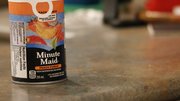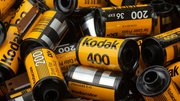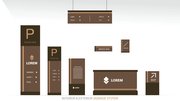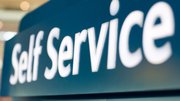Article
Hotels waking up to self-service
As the travel market rebounds and occupancy rates rise, hotel operators are turning to self-service solutions.

January 20, 2011
Work requires Curtis Cluckey to travel weekly throughout the Midwest, and he demands quick, convenient service from the hotels he selects. He's grateful for kiosks that often help speed up the check-in process.
"I don't have time to stand in line," said the 42-year-old salesman from Liberty, Mo. "I just need to get my stuff and go."
Although some might assume using machines to greet guests takes away from customer service, Cluckey would disagree.
"I'd much rather use the kiosk than have to wait in line to get in," he said.
He's not alone. In its 2010 study, a business research firm, The Aberdeen Group, reported that best-in-class hospitality organizations are twice as likely to use self-service solutions. The hotel industry is embracing kiosks:
- to save money
- to offer better customer service
- and because consumers are increasingly becoming more comfortable with technology.
Owen Wild of NCR Corp, a global provider of self-service solutions, is not surprised.
 |
| NCR Corp's check-in kiosk |
"An increasing number of hotel groups have been rolling out these solutions in the last few years due to their proven ability to not only improve the guest experience and loyalty levels, but also increase revenues," said the vice president of Solutions Marketing for Travel and Gaming. "We will see this accelerate with personalized self-service solutions using a combination of online, mobile and kiosk channels."
Kiosk deployers target hotel industry
NCR has a number of hotels in the United States using its self check-in solution, but the company recently expanded internationally with the addition of APA Hotel in Japan.
"It's an area we're targeting for growth in 2011," Wild said.
To help meet that goal, the company developed "NCR Hotel," a hardware and software solution that allows guest to confirm reservations, select or upgrade their room, encode, validate and receive room keys, as well as print their guest folios and check out.
Other companies are on the bandwagon, too. Laurent Cardot, chief executive officer of Ariane Systems, a global provider of self-service solutions for the hospitality market, said his company has also developed a technology specifically for hotels. The solution, called Allegro, allows guests to use websites, kiosks or their mobile phones to check in and out of hotels.
 |
| Ariane Solutions designed Maxhotel's check-in kiosks |
"Lately, we have noticed that the number of kiosks installed per hotel property has increased, and it has a direct impact on the ROI," Cardot said. "We have an ROI model that clearly calculates the savings a hotelier can achieve by implementing check in/out kiosks depending on the hotel capacity, category, occupancy rates and other factors."
Cardot said Ariane has nearly 2,000 installations in hotels throughout the world and expects 2011 to be a great year for new deployment for several reasons.
"Let's face it. Today, almost all industries use self-service kiosks — department stores, airports, casinos, video DVD, cinemas and hotels," he said. "Those industries implement kiosks to reduce operational costs, develop an innovative brand image, offer a fast alternative to their guests or to achieve all three at the same time."
Consumers expect self-service
Belgium-based 3 Stars Hotels is no exception. It installed Ariane kiosks in its Maxhotel concept in Brussels eight months ago to help provide "the best value for money," said Olivier Dubois, sales and marketing executive for 3 Stars Hotels. The 63-room hotel deployed self-service kiosks that not only check guests in and out, but also provide room keys and deliver guests incoming messages. Room prices range from about $50-$200
"One of the crucial points was the reception," Dubois said. "We did not want a traditional reception desk, so we went for the kiosk, meaning that everyone should be able to check in and out alone."
Dubois' guests seem to enjoy the ease and speediness of the check-in process. In fact, a reporting module installed inside the kiosk software showed that 70 percent of guests at MaxHotel completed check-out operations in less than 90 seconds. In November and December, the kiosks performed more than 2,500 transactions, Cardot said.
Both men expect that number to quickly increase as the public becomes even more comfortable with technology. In fact, they said many guests prefer kiosks over standard check-in processes.
"They find it easy to book online from their own computer for any kind of service, so this could be seen as a natural continuation," Dubois said. "Also, some hotel kiosks are used for express check-in as an extra (faster) service for people.
Helping guests see kiosks as a perk, not as a replacement of good customer service, is key to their success, Dubois said.
"The most important point for us is to communicate toward the guest," he said. "The guest must know that he will be in touch with a kiosk. He must understand why we chose it. And he must agree on this fact. With that, we will have a happy user."
Gary Patrick of Hotel Internet Services, a company that sells services and equipment to hotels, admits kiosks will never replace smiles. However, some travelers don't require them.
"Many are becoming more and more technically savvy and do not mind using computers for their transactions, especially if it speeds things up for them," he said. "Think of how many people would not make their deposit with an ATM when that service first came available. It was not until they became more comfortable with the technology over time that people decided they did not have to see a human for every transaction."
Helping the bottom line
Patrick said hotels can benefit from this technology-friendly attitude since kiosks can obviously save them money.
"With the downturn in the economy over the past few years, hotels were hit very hard," he said. "Many scaled back the number of staff they have. Because of this, there are less staff to deal with the customers. Ultimately, having a kiosk at the front will be much more inexpensive then adding additional employees."
The kiosks at MaxHotel allow them to save money (and charge guests less) by employing less staff, Dubois said. However, Dubois also said staff members are multifunctional, meaning that although they assist guests who need help with the kiosks, they are not tied down to the front desk. They can handle odd jobs, including refilling vending machines and checking rooms after cleaning.
Offering another level of customer service
Although many people may be quick to blame the bad economy for increased kiosks usage in hotels, a study conducted at Cornell University's School of Hotel Administration reported that hotel owners are deploying more kiosks to increase customer service, not necessarily to cut costs.
"The top one driver for hotels to implement kiosks is also customer service, followed by operation efficiencies/redeploy resources, competitive differentiation, and increase revenue by gaining up-selling opportunities," said Gabriele Piccoli, co-author of "Integrating Self Service Kiosks in a Customer-service System." "Moreover, the take rates are too low to allow for cutting positions at this point."
Piccoli and co-author Tsz-Wai Lui's study proved that kiosks can increase customer satisfaction as they decrease budgets if the machines "work properly." And that is the key phrase, said Francie Mendelsohn, president of Summit Research Associates, a company that provides consulting and research to the kiosk industry.
"People get really frustrated when they don't work, and there needs to be someone there who can help them if that happens," she said.
Developing intuitive apps for hotel kiosks
For more high-end hotels to embrace kiosks, software developers must get creative with functionality, Mendelsohn said.
"Say you are coming in at 11:30 p.m., and the hotel is empty, so the front desk person gives you the master suite," she said. "This is a really good thing for customer retention."
Although those favors are more easily done with human-to-human contact, Mendelsohn said talented software developers can program kiosks with those functions.
In fact, NCR kiosks already have some of those capabilities, including a feature that offers room upgrades upon check-in.
"When consumers are offered room upgrades when they check-in, the sales conversion rate is around 5 percent," Wild said. "And there is also the opportunity to promote additional hotel amenities, such as dining, fitness and spa services."
Combining technology with human touch
Dubois said hotels dedicated to improving customer service should offer kiosks as well as human interaction.
"As I always say, there is someone 24 hours a day at the reception level because we felt that this was an important point for guests — human presence — so they have a feeling of security that they will be helped if needed," he said.
Cardot agreed, pointing out that society is in a transitional phase that requires hotels to offer both technology and person-to-person service.
"Some guests desire human interaction," he said. "Others, like the Y generation born with a cell phone in their hands, would prefer to utilize self-service."
 ChatGPT
ChatGPT Grok
Grok Perplexity
Perplexity Claude
Claude









